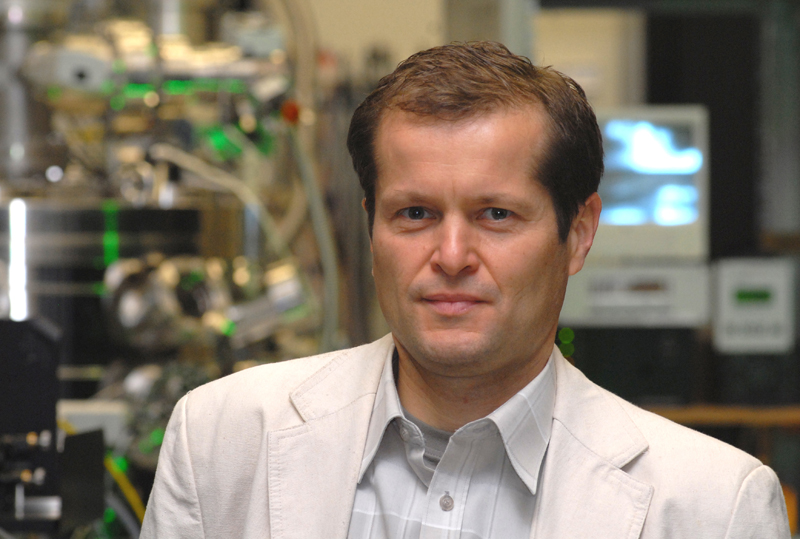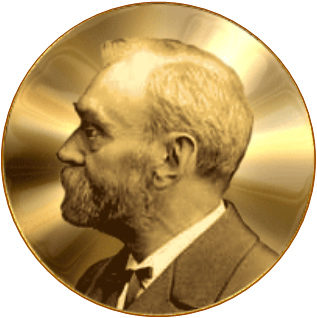 together with Anne L’Huillier and Pierre Agostini "for experimental methods that generate attosecond pulses of light for the study of electron dynamics in matter".
together with Anne L’Huillier and Pierre Agostini "for experimental methods that generate attosecond pulses of light for the study of electron dynamics in matter".
Professor Pavel Exner, the Chair of the Physics and engineering sciences section section writes:
Professor Krausz, a member of the Physics and Engineering section of the Academy, receives the Prize jointly with Professors Pierre Agostini and and Anne L’Huillier for "for experimental methods that generate attosecond pulses of light for the study of electron dynamics in matter.
Professor Krausz did a pioneering work in creating laser pulses of a controlled shape at the attosecond scale, which can be used to observe a large number of fundamental electron processes in the matter on the subatomic scale. The technology he and his team invented made it possible, in particular, to develop infrared spectroscopy for biomedical applications.
About Ferenc Krausz#
Ferenc Krausz is a director at the Max Planck Institute of Quantum Optics and a professor of experimental physics at the Ludwig Maximilian University of Munich in Germany.
Ferenc Krausz was born in Mor, Hungary. He was awarded his M. S. in Electrical Engineering at Budapest University of Technology in 1985, his Ph. D. in Quantum Electronics at Vienna University of Technology in 1991, and his "Habilitation" degree in the same field at the same university in 1993. He joined the Department of Electrical Engineering as an Associate Professor in 1998 and became Full Professor in the same department in 1999. In 2003 he was appointed Director of the Max-Planck-Institut für Quantenoptik in Garching, Germany, and since October 2004 he has also been Professor of Physics and Chair of Experimental Physics at Ludwig-Maximilians-Universität München.
His research includes nonlinear light-matter interactions, ultrashort light pulse generation from the infrared to the X-ray spectral range, and studies of ultrafast microscopic processes. By using chirped multilayer mirrors, his group made intense light pulses comprising merely a few wave cycles available for a wide range of applications and utilized them for pushing the frontiers of ultrafast science into the attosecond regime. His most recent research direction in attosecond physics is the control and real-time observation of the atomic-scale motion of electrons and the development of brilliant X-ray and charged-particle sources for applications in physics and biomedicine. He co-founded Femtolasers GmbH, a Vienna-based company specializing in Ti:sapphire femtosecond laser sources and initiated Ultrafast Innovations GmbH, a joint venture of the Max Planck Society and the Ludwig-Maximilian-Universität München making cutting-edge ultrafast technologies available to research groups all over the world. Moreover, he has co-initiated and been a driving force behind several Pan-European research endeavours and collaborative research actions such as the LASERLAB Europe and several Maie Curie-networks, as well as the large-scale infrastructure Extreme Light Infrastructure (ELI).
Announcement of the prize

Nobel Prize committee press release

Ferenc Krausz's first reaction
 , Adam Smith
, Adam Smith


